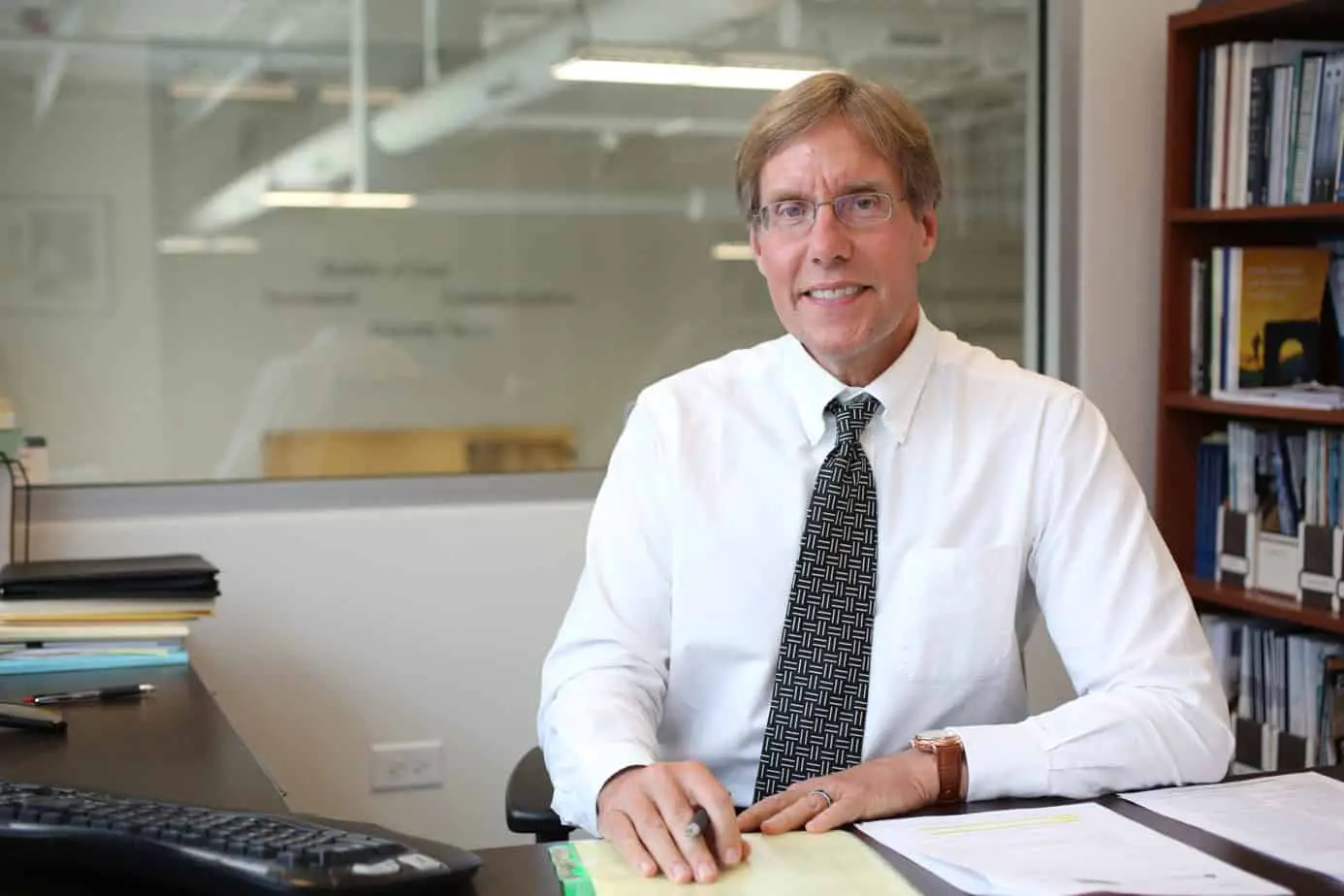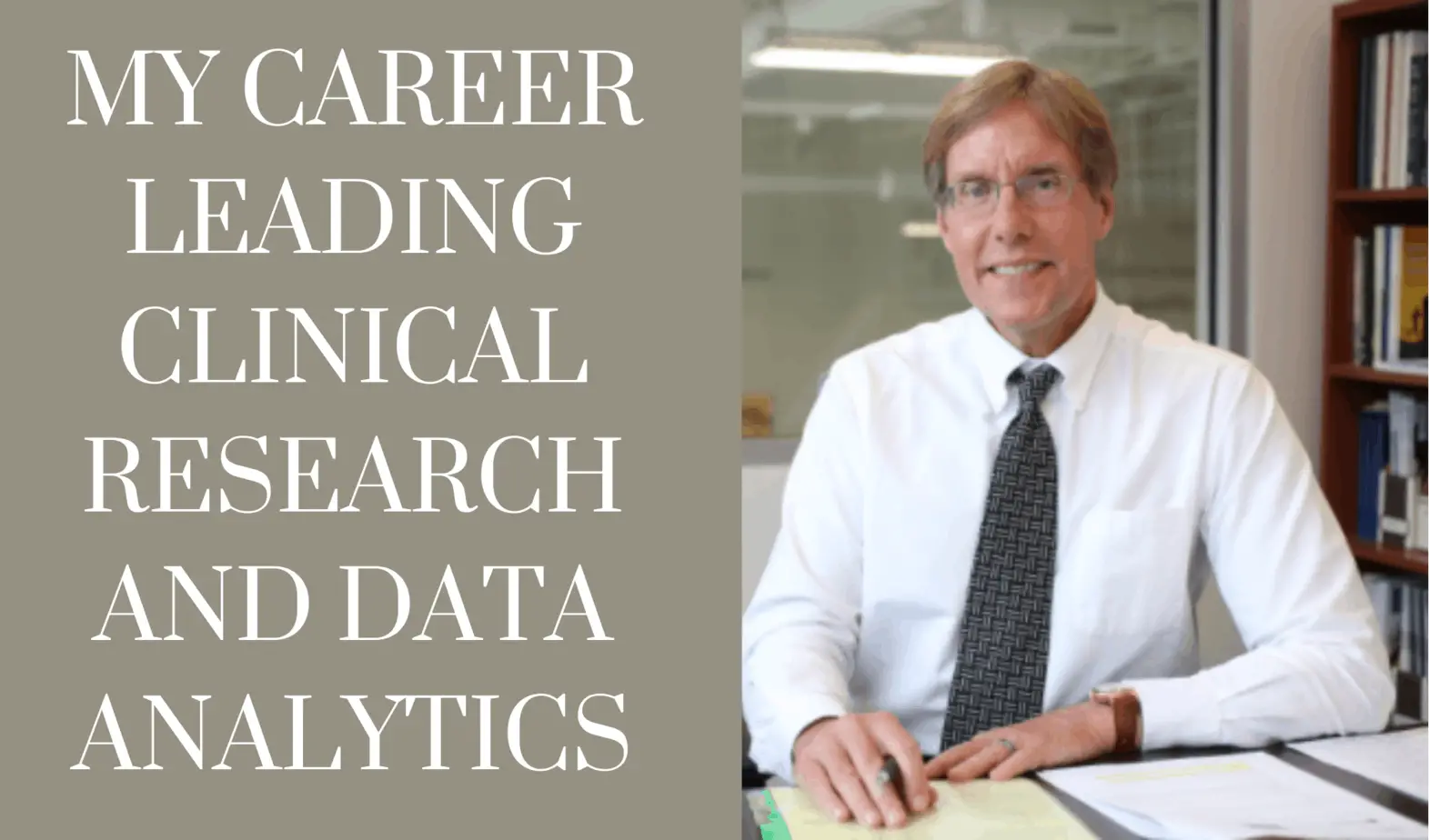My career leading Clinical Research and Data Analytics
How was your University time?
I loved all of my undergrad, graduate and post-doctoral studies. In high school, I was a bit of an oddity as I had a double major in math and also minored in art. In college I published a pencil sketch in a literary journal that was part of a poem. This was while bouncing around between the Schools of Science and Engineering, before getting degrees from both. One summer break backpacking through Europe, I shot major and minor art works for the Religious Studies Department. I came out of my shell and became active in elected student government, associations, my fraternity, volunteering and working. Grad school was great, and set me on the first of many paths.
Why did you seek out a career in this field?
I didn’t — and I’d speculate I couldn’t — have planned it. Working in the “medical humanitarian space” was the result of organic happenstance. While I did have the benefit of benign neglect concerning high school career counseling, and as my mother came to realize the chances of my becoming an astronaut were slim, I was pretty much left to my own devices when it came to my career direction.
Dammit, only myself to blame?
Lacking a rudder but having plenty of wind is how I have defined my credibility as being an authority on the topic of career snafus. I suppose my first mistake was to have no direction. Then it was to have the wrong direction. Then it was to have another direction, and then another, and another — you get the picture. I imagined my role in my career direction as acting like a nearsighted Mr. Magoo stepping off one gig or university program or internship and falling onto another (thankfully without missing a step ala my role model).
After undergraduate majors of math, then engineering, then science, then technology, then architecture, and finally psychology I entered graduate school concretely convinced that I would get my doctorate and establish an outpatient practice with adult patients. Of course I wound up treating children in inpatient settings. Then I did more and more administrative work, so back to school for an MBA. Dr. Magoo now reprised.
It’s not that I was “following my Zen” as I needed to make some dough, but when interest or opportunity came a knocking, I couldn’t open the door fast enough. The good news is that in spite of looking like an overeducated drifter still searching for a major, all of my past dabbling — including mountaineering and travel — have all conspired into my creating what I love: Running a non-profit organization.
As for jobs, they include serving as VP for the Department of Research and Data Analytics (thank you Richard Saul Wurman for teaching the world about data representation) at ATI Holdings, LLC, faculty at the College of Medicine at the University of Illinois at Chicago, Chief Clinical Officer at Prevail Health, Podcast Host, Author, and Director of the Center for Global Initiatives.
What was your first job or nuggets from jobs you had that helped you to get to where you are today?
Always saying YES at the start of my career and mostly saying NO these days. Be willing to OWN your job. Do what’s needed and then do more. Help others look good. Act as if you are the CEO in terms of caring and working hard. Do you pick up a discarded coffee cup in the parking lot, you should, it’s your parking lot, of your building, or your company. Own every part of it. Don’t act like “just” an employee.
How did you prepare for an interview?
I researched everything I could about leaders of the organization, I read what they wrote, listened to podcasts they were interviewed on, learned about their origin stories, and worked to relate myself to some aspect of all the above. Then I associated all that to why they would want to hire me, why I was perfect fit and could augment or accelerate their work, and distinguish myself as to why I was different from all the other high achieving, top GPA, Ivy University Graduates that were applying and why I was the perfect fit for them. I was specific, factual, and authentic, no bluster, bravado or BS. I did my homework, fully, and showed them.
Books that helped you?
A lot, I keep track here: https://www.pinterest.com/drchrisstout/my-nightstand/
Things are changing very fast in the industry; how do you keep yourself updated. Please list techniques or newsletter, podcasts, events, etc.
I work hard to have cutting edge thinkers as guests on my podcast, Living a Life in Full. It’s a magazine style show vis-à-vis topics and guests—we go as deep as we do wide. The roster of guests epitomize diverse abilities combined with a creative drive that has resulted in their incredible life experiences and inspiring stories.
They are a veritable who’s who that includes well known academics, physicians, a Nobel Laureate, an Olympic Medalist, an Ambassador, various thought leaders, humanitarians, policy wonks, a land speed record holder, an astronaut, TED speakers, global-travelers/hackers/circumnavigators, activists, medical technologists, engineers, world record holders, alpinists, creatives, pioneering explorers, Emergency Medicine specialists, a US Senator, ultra/endurance athletes, CEOs, CIOs, university presidents, novelists, scientists, medial innovators, adventurists, artists, futurists, a fighter pilot, start-up founders, a private equity pioneer, founders, United Nations NGO Representatives, entrepreneurs, triathletes, coaches, journalists, commentators, photographers, presidential advisors, economists, theologians, and polymaths of all stripe—many are friends and all are wonderful, complex people. It’s available on all podcast platforms.
Become the expert in your niche/specialty, but also have awareness, of what’s going on in related as well as diverse areas/fields/industries. Read outside of your field, listen to tangential podcasts, go to conferences that cover areas outside of your skillset.
What can you recommend on CV?
Tailor it to your audience or to the job you’re applying for. I have various versions of mine and one complete version.
Advice for someone looking for job?
Research who you’re going to be working for and figure out why they would want to hire you, why it is you’re a perfect fit, why it is you are so different from all the other high achieving, top GPA, Ivy University Graduates and the perfect fit for them. Be specific, factual, and authentic. No BS. Do your homework, fully, and show that you did so via what you say in your cover letter with super-granular and specific detail
Why do you think you were selected among other candidates?
Because I did what I recommended, I also offered my ideas as to what I envisioned for the company and how I would go about doing it. I acted like I was a consultant, not an applicant.
Lessons from jobs that you couldn’t get.
Recognize such things happen. Get over it and move on, unless there is something you did that you should not have, or should have but didn’t. You could even circle back and ask for feedback.
Dr. Chris Stout is Vice President of Clinical Research and Data Analytics at ATI, the nation’s largest orthopedic rehabilitation and sports medicine corporation, with over 800 clinics and 23,000 patients seen daily. He has an extensive background in technology ventures with clinical overlap. He’s held academic appointments at Northwestern University’s Feinberg School of Medicine, the University of Illinois at Chicago’s College of Medicine, and Rush University. Dr. Stout was educated at Purdue University, The University of Chicago’s Booth Graduate School of Business, and Forest Institute, where he earned a doctorate in clinical psychology. He was a Post-doctoral Fellow in neuro-developmental behavioral pediatrics at Harvard Medical School. He has received four additional doctorates (honoris causa) including a Doctorate in Technology. He’s a bestselling author and also published software developer. He’s lectured worldwide and was an invited faculty by the World Economic Forum to Davos. He is a popular LinkedIn Influencer and writes on global health, medicine, and humanitarian activism, with over 440,000 followers. He also writes for Geek.ly on technology, big data and predictive analytics in healthcare. Dr. Stout hosts a popular podcast that covers various topics including medical innovations from Blockchain to machine learning.
Also red: How I Became An Experienced Digital Marketing Manager At The Ripe Age Of 22?

